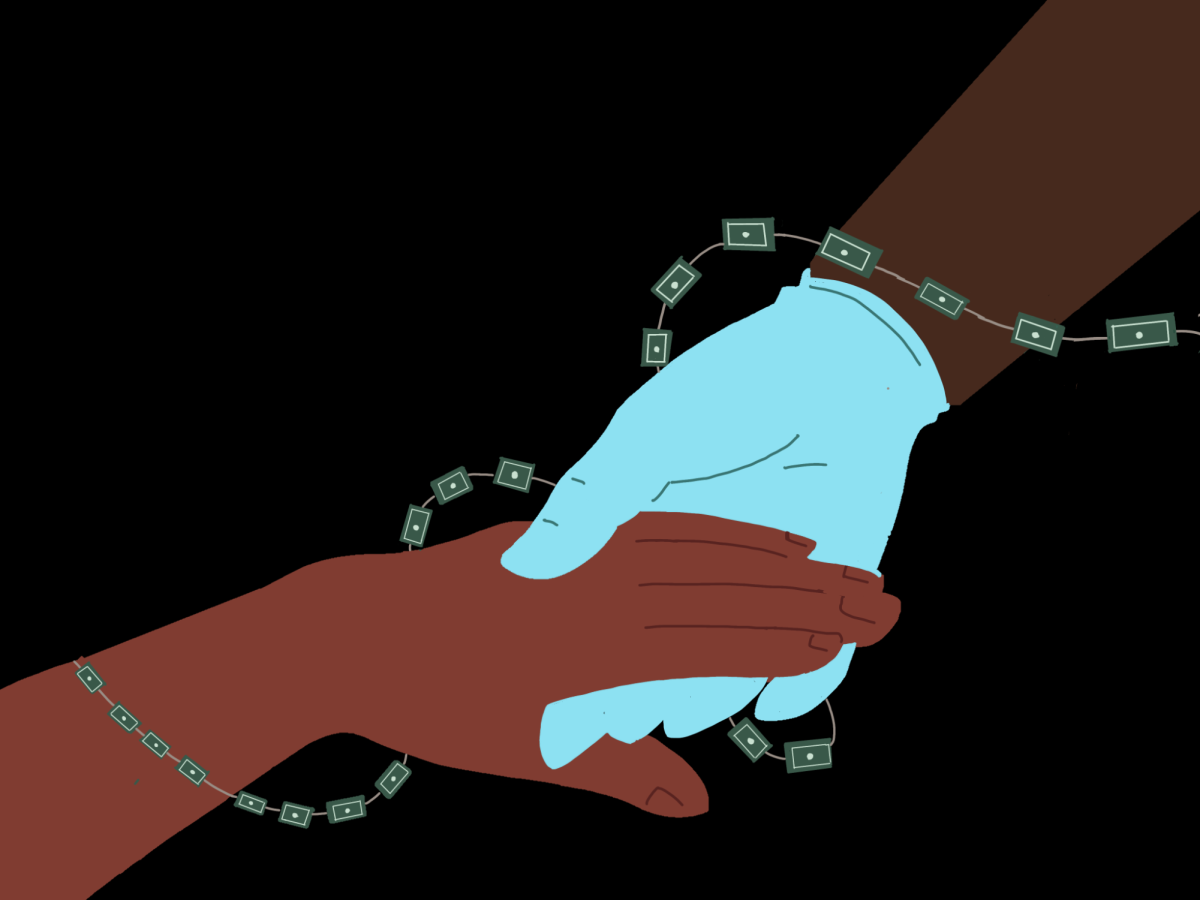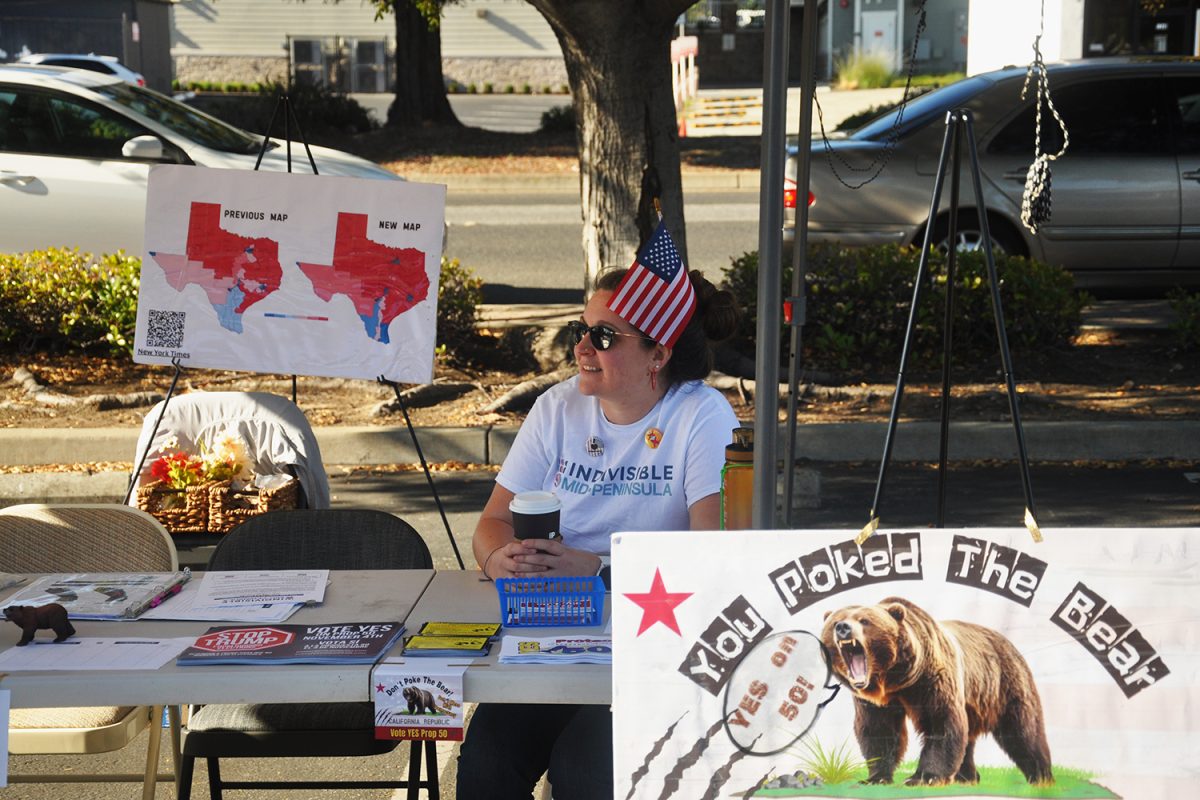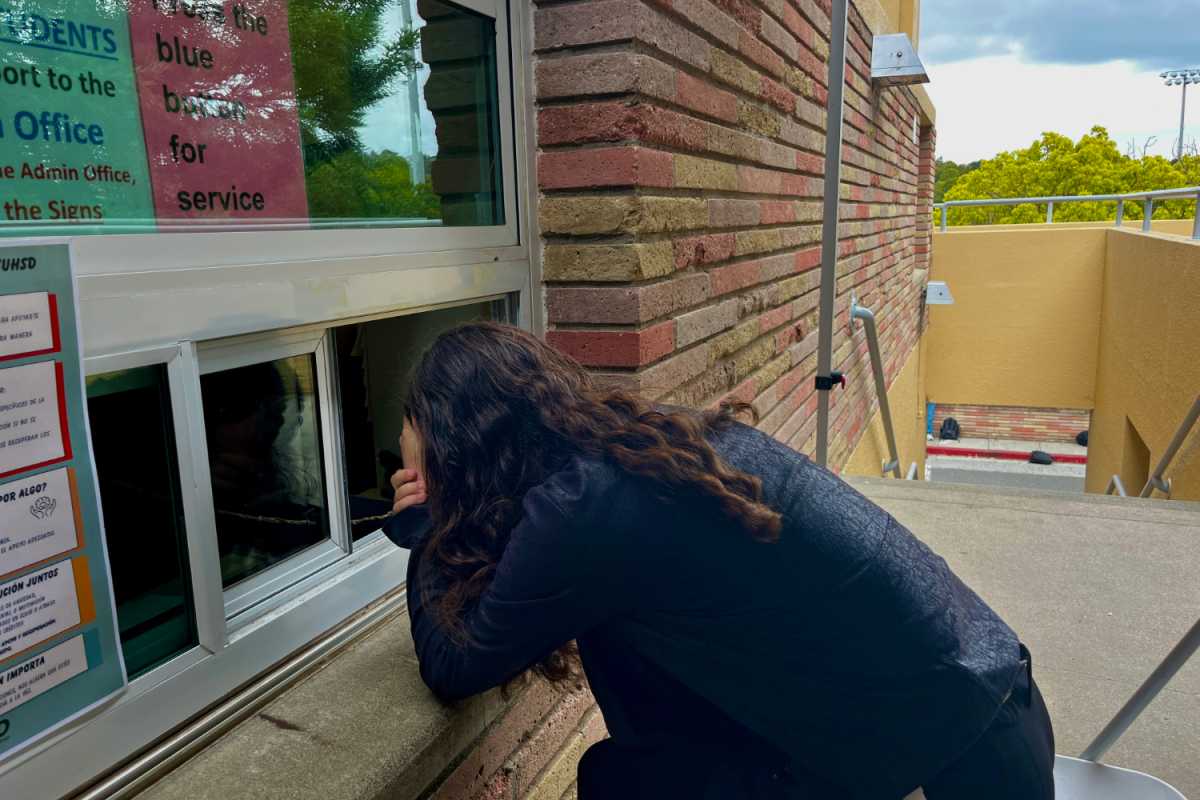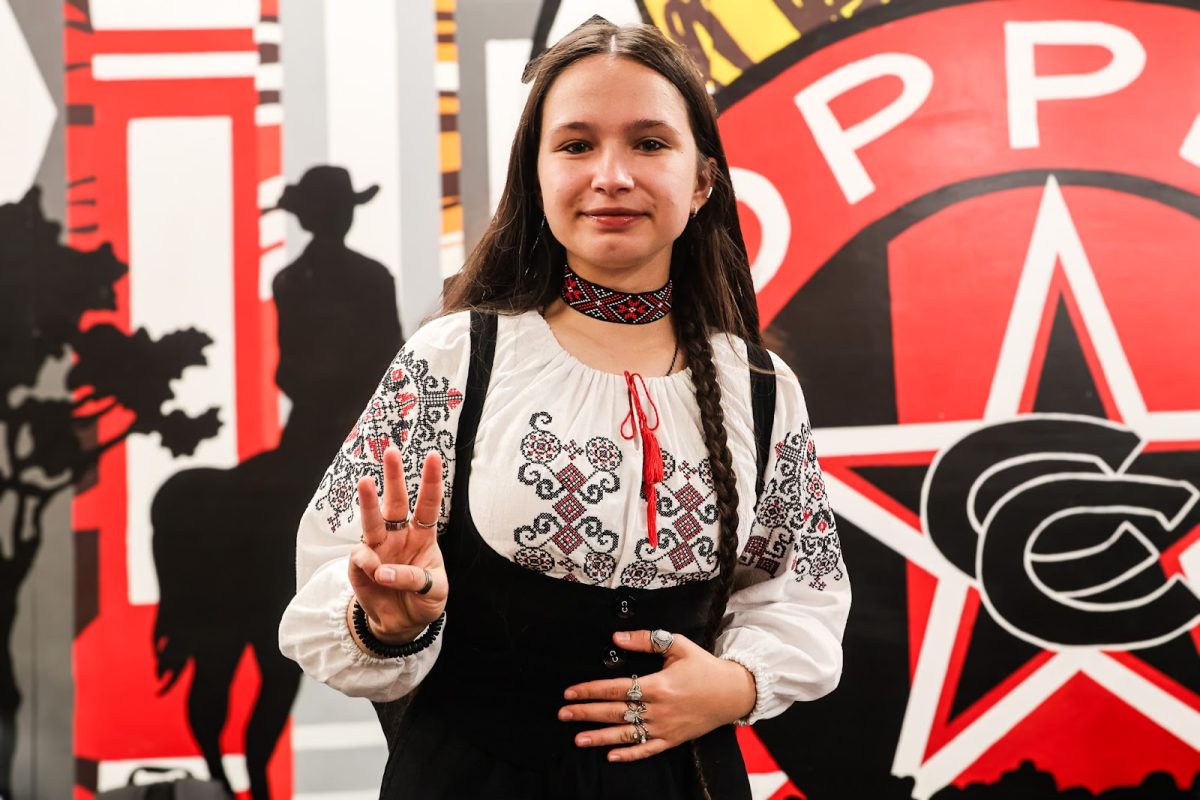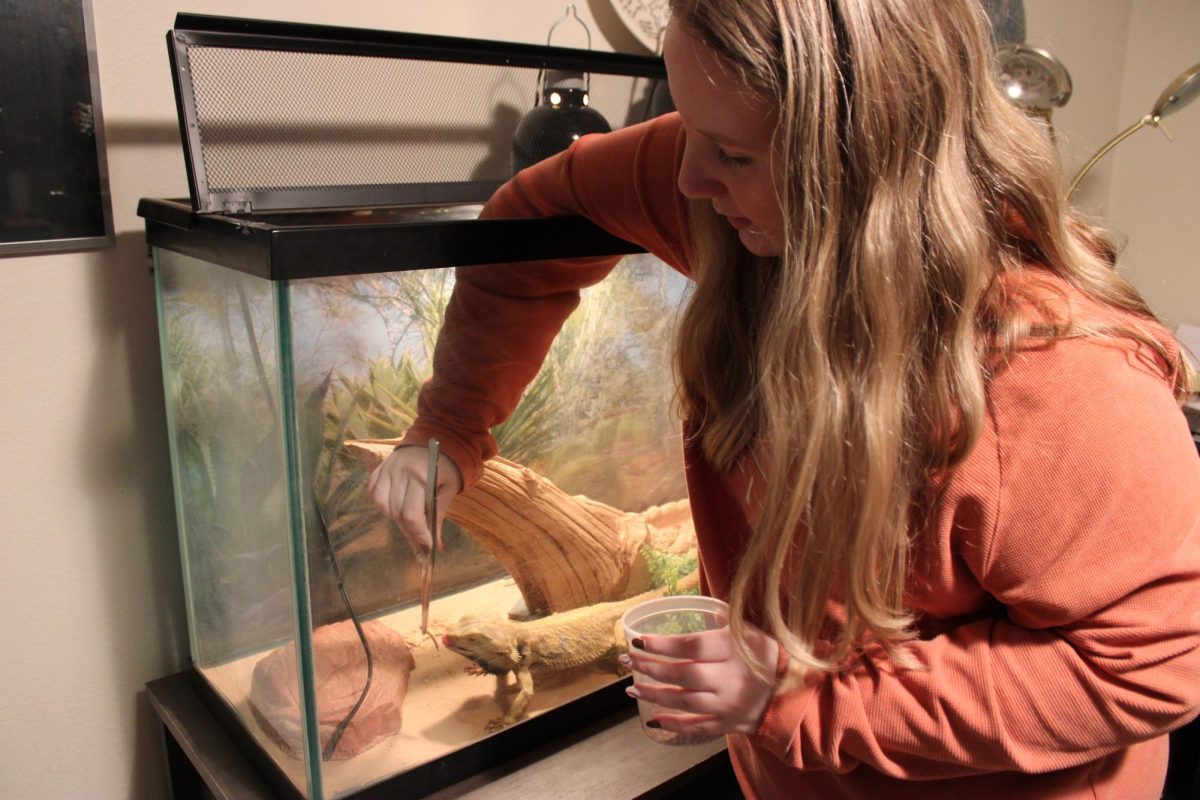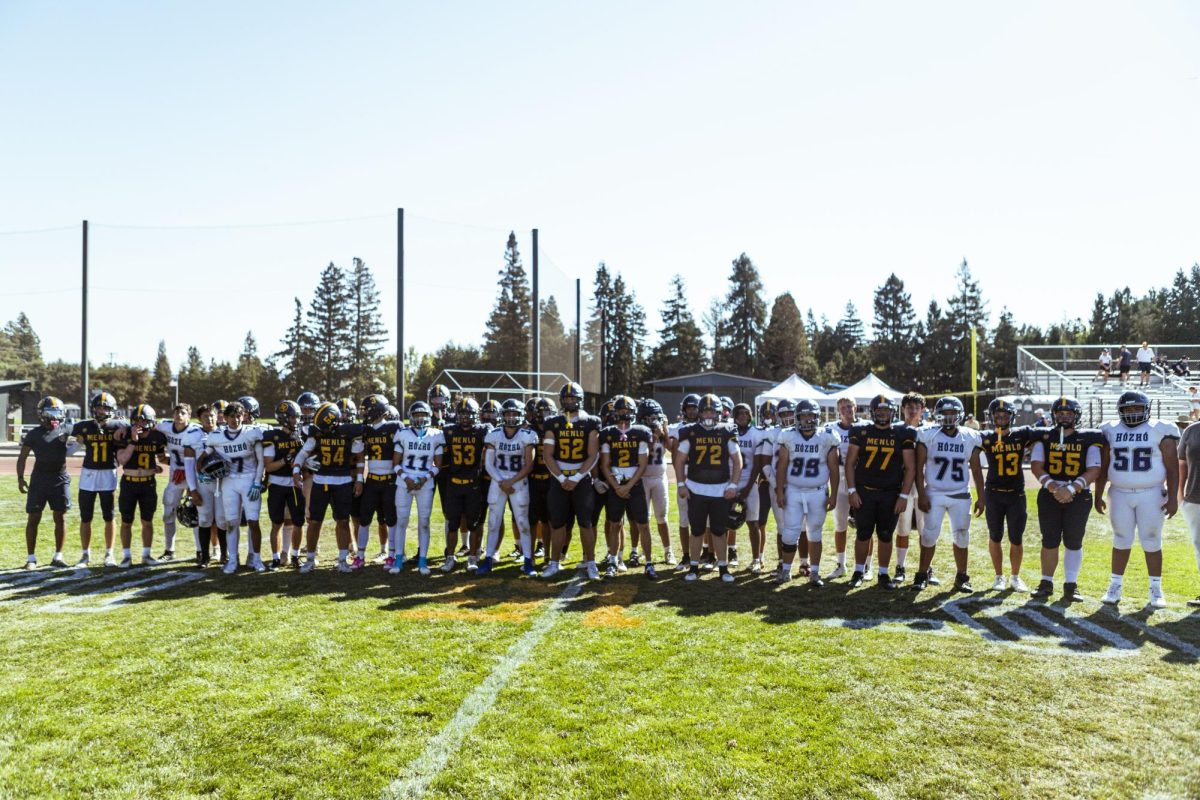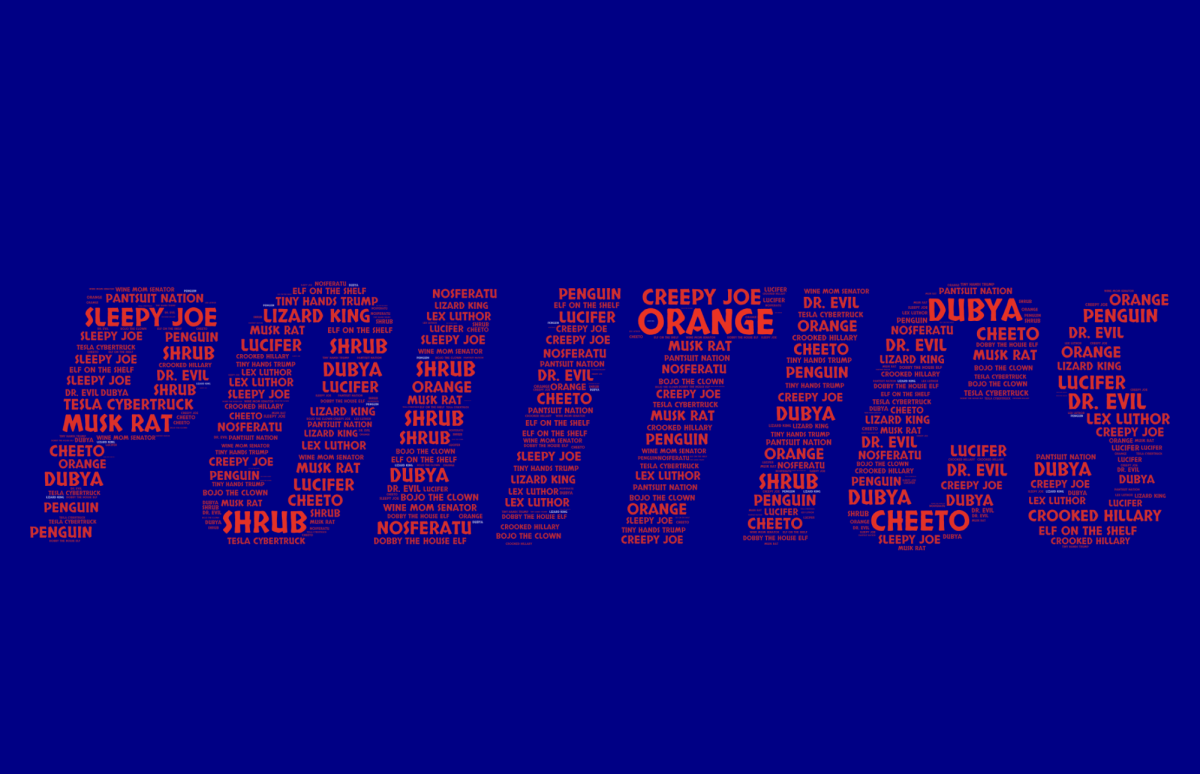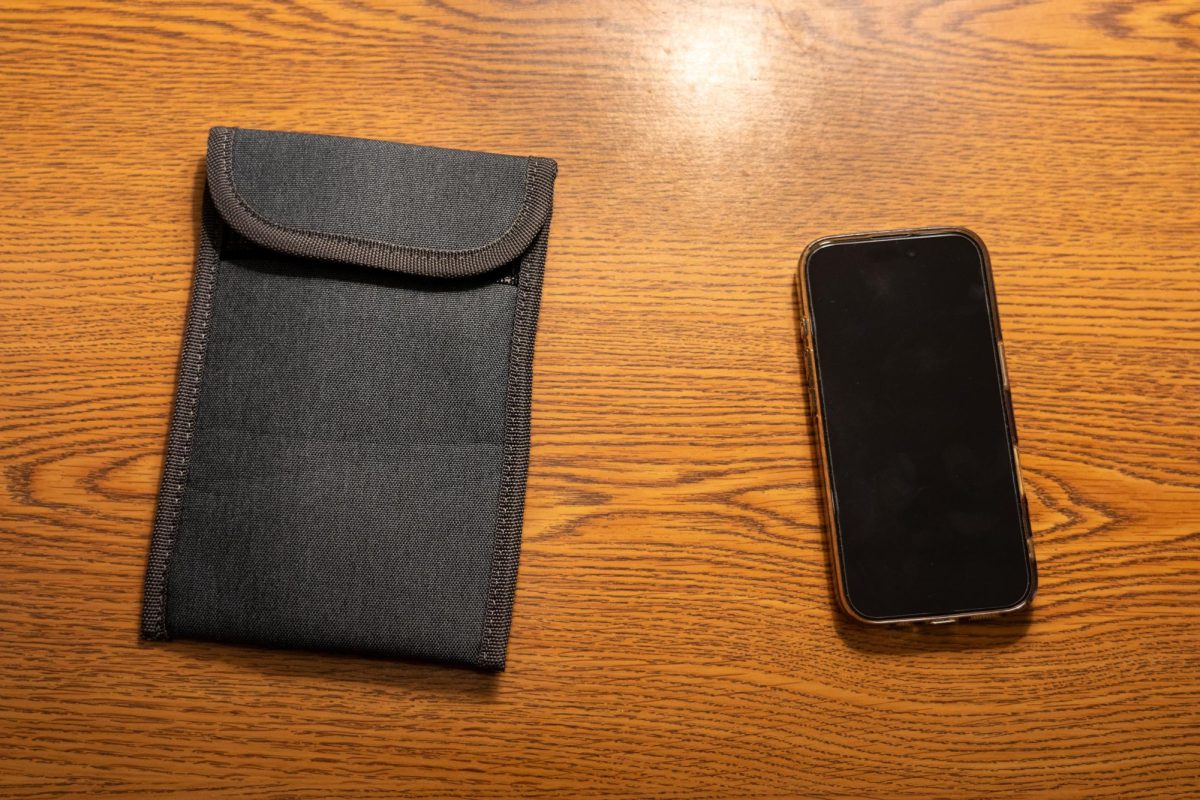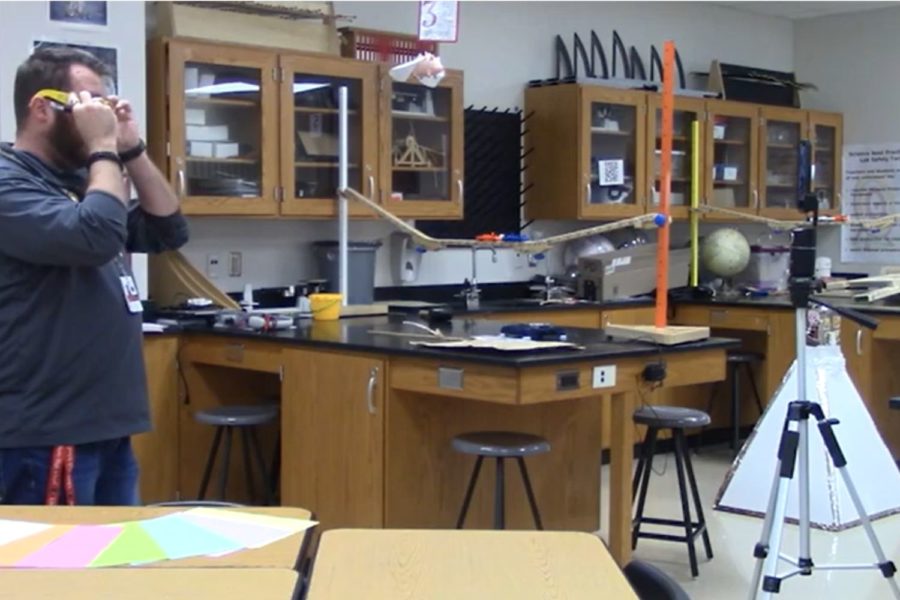Learning with social media one swipe at a time
Nicolas Hamilton
Taking a distraction and turning it into a tool, increasing amounts of teachers have turned to social media for educational purposes. On campus, AP Physics teacher Kenric Davies (pictured) has taken to creating Fun Physics Friday TikTok videos.
April 12, 2023
Get to class, put your phone up, and take a seat.
All across campus, students are often required to put their phones away in the classroom, making sure that impending learning isn’t interrupted. However, some teachers and students use their phones to enhance the learning experience; creating and consuming education-related content.
“There’s actually a lot of educators on TikTok,” AP Biology and AP Research teacher Chris Ham said. “I get to see a lot of cool demos sometimes, and a lot of them are in the physics space, which makes me kind of jealous because there are not a lot of demos in biology. But it’s still nice to see what other people are doing, especially when I don’t have a teaching partner, because I’m the only teacher that teaches my two classes.”
With 67% of teens using TikTok, AP Physics teacher Kenric Davies sought to meet his students where they already are, and began creating physics-related videos for students.
“I’m all for [teachers going to apps students are on], right?” Davies said. “I mean, those are apps where the students kind of choose what they wanna see. And so all I’m doing is providing a resource and if they want to take a look at it, great. So it’s accessing where they are and what they want.”
Phone use in class can be a battle for some teachers, but by embracing apps such as TikTok, educators can broaden the scope of students’ knowledge.
“I have students come up to me sometimes telling me about a historical event they first learned on TikTok and that can really help start a student’s interest in learning about the world,” AP World History teacher Kristen Mayfield said. “I also think using other social media platforms allows teachers to connect on a level with the students that they may value or understand more than a traditional classroom setting.”
According to Mayfield, TikTok is a valuable tool in preparing for upcoming AP exams.
“I do recommend a couple of teachers on there every year who have phenomenal review videos for my AP World History kids taking the AP exam,” she said. “I think TikTok can be a great educational tool since it allows viewers a snippet into an event, era, [or] historical figures life that might not be in a traditional textbook; it also allows for these teachers to elaborate on some things in the books that might just be briefly mentioned.”
The accessibility and short-form content can help keep some students engaged in learning.
“I use TikTok in my free time and watch my for you page for entertainment but I also see educational videos,” junior Kayla Winter said. “Before my AP test I would look at it for tips. That was more helpful than watching YouTube videos because they’re shorter and get to the point. I also use the app a lot so it was easier access.”
Along with improving students’ knowledge, using social media can also improve educators’ ability to connect with students, according to Ham.
“So [meeting students where they are] is really important to me in staying relevant with the world,” Ham said. “I would hate to be the person that just feels really disconnected, they don’t really know what the trend is. So I like to stay aware of that, and at least I’m aware when a student makes a reference to something. And I can also be the one that makes that reference and it kind of makes the classroom more relatable.”
However, the ability to do this may be limited due to the possible ban of the app TikTok.
“I think there’s a lot of politics that are surrounding [potential ban on TikTok],” Davies said. “You know, some good, some bad. I think the congressional hearing showed that there’s a lot of misunderstanding about what it can and can’t do and where it’s coming from and how it’s being used. But I think that’s true for pretty much any social media platform.”
To Ham, the ban on TikTok would be a bandaid for the greater problem of data privacy across social media.
“I think banning TikTok is a temporary solution to a much bigger problem,” he said. “So I think we just need better privacy laws on how we manage the data of people, especially United States citizens. We need something on a bigger scale that can help protect the data and not necessarily pick one social media, because there’s other social media out there that have similar problems as TikTok.”
But whether it’s TikTok or something else, Davies doesn’t plan to stop using social media for educational purposes.
“I find it fun just to do it, and I kind of go where the people are,” Davies said. “So I don’t just use TikTok. I do Instagram, I do Twitter. I would probably fall back on the [apps] that I already use. So I don’t think it would necessarily change what I do, it would just change where I can post it.”
This story was originally published on Wingspan on April 5, 2023.

